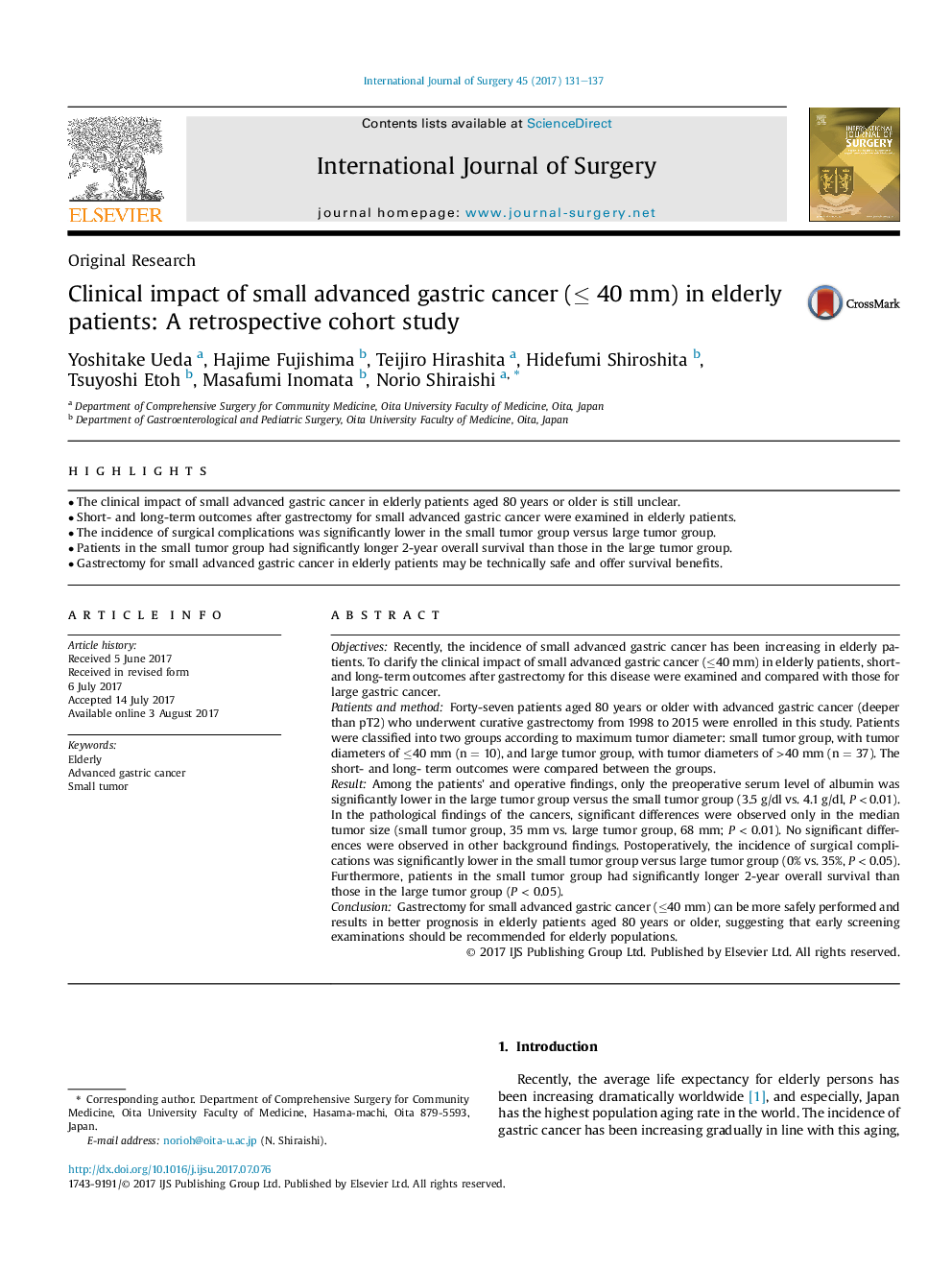| Article ID | Journal | Published Year | Pages | File Type |
|---|---|---|---|---|
| 5732029 | International Journal of Surgery | 2017 | 7 Pages |
â¢The clinical impact of small advanced gastric cancer in elderly patients aged 80 years or older is still unclear.â¢Short- and long-term outcomes after gastrectomy for small advanced gastric cancer were examined in elderly patients.â¢The incidence of surgical complications was significantly lower in the small tumor group versus large tumor group.â¢Patients in the small tumor group had significantly longer 2-year overall survival than those in the large tumor group.â¢Gastrectomy for small advanced gastric cancer in elderly patients may be technically safe and offer survival benefits.
ObjectivesRecently, the incidence of small advanced gastric cancer has been increasing in elderly patients. To clarify the clinical impact of small advanced gastric cancer (â¤40 mm) in elderly patients, short- and long-term outcomes after gastrectomy for this disease were examined and compared with those for large gastric cancer.Patients and methodForty-seven patients aged 80 years or older with advanced gastric cancer (deeper than pT2) who underwent curative gastrectomy from 1998 to 2015 were enrolled in this study. Patients were classified into two groups according to maximum tumor diameter: small tumor group, with tumor diameters of â¤40 mm (n = 10), and large tumor group, with tumor diameters of >40 mm (n = 37). The short- and long- term outcomes were compared between the groups.ResultAmong the patients' and operative findings, only the preoperative serum level of albumin was significantly lower in the large tumor group versus the small tumor group (3.5 g/dl vs. 4.1 g/dl, P < 0.01). In the pathological findings of the cancers, significant differences were observed only in the median tumor size (small tumor group, 35 mm vs. large tumor group, 68 mm; P < 0.01). No significant differences were observed in other background findings. Postoperatively, the incidence of surgical complications was significantly lower in the small tumor group versus large tumor group (0% vs. 35%, P < 0.05). Furthermore, patients in the small tumor group had significantly longer 2-year overall survival than those in the large tumor group (P < 0.05).ConclusionGastrectomy for small advanced gastric cancer (â¤40 mm) can be more safely performed and results in better prognosis in elderly patients aged 80 years or older, suggesting that early screening examinations should be recommended for elderly populations.
